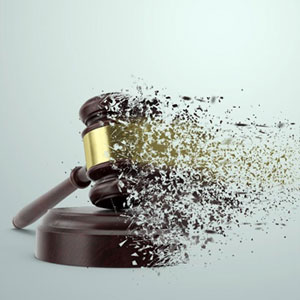Legal Errors In A Sex Crime Conviction Appeal
 Legal Errors As Grounds For Appeal In Sex Crime Convictions
Legal Errors As Grounds For Appeal In Sex Crime Convictions
Legal errors observed in other cases can also be argued in sex crime appeals. However, certain legal errors tend to feature more prominently in sex crime cases. One crucial error lies in the violation of the right to confront witnesses, a privilege guaranteed by the Sixth Amendment to the United States Constitution and reinforced by the Michigan State Constitution.
Violations Of The Right To Confront Witnesses
In sex crime cases, the right to confront witnesses often faces significant challenges. Commonly, the prosecution calls on a ‘first disclosure witness’, typically an individual to whom the alleged victim first disclosed the assault. The statements relayed by this witness are hearsay, and cross-examination becomes difficult since the defendant cannot confront the original source of the information.
A Sexual Assault Nurse Examiner (SANE) can also be called to testify, often recounting statements made by the alleged victim during their examination. The defense is again limited in its ability to cross-examine these statements, made by the complainant but testified to by the SANE nurse at trial.
Even crime lab reports discussing evidence like DNA, blood types, or the presence of semen can potentially be submitted without the analyst being present, challenging the defendant’s right to confront their accusers.
Challenges With Face-to-Face Confrontation
Perhaps the most significant recent development lies in the erosion of the tradition of face-to-face confrontation. Advocates for sex crime victims argue against subjecting the victim to the potential trauma of being in the same room as the defendant. As such, they might attempt to have the victim testify via video feed or behind a screen.
This is a development that must be consistently challenged at trial and, if permitted, should feature prominently in any appeal of a sex crime conviction.
There are, of course, many other legal errors that can form the basis of an appeal. However, confronting these issues should be the starting point in any review of a sex crime conviction for appeal purposes.
Evaluating Claims Of Ineffective Assistance Of Counsel In Appeals
Ineffective assistance of counsel is increasingly significant in sex crime conviction appeals. The method by which an appellate court assesses such claims essentially involves two critical questions.
Presence Of An Evidentiary Hearing
Firstly, the court will ascertain if an evidentiary hearing, known as a Ginther hearing, was held to assess the trial lawyer’s representation. If such a hearing took place, the Court of Appeals will examine its proceedings to determine whether the trial court correctly judged the effectiveness, or lack thereof, of the trial lawyer.
However, if no such hearing was held, the factual elements presented by the defendant in support of their claim of ineffective assistance of counsel should be assumed true by the Court of Appeals. If these elements, at face value, support a finding of ineffective assistance of counsel, the court should legally reach that decision.
Timing Of The Request For A Hearing
When the request for the Ginther hearing was made is critical. This can be initiated in two stages. It can be requested through a motion for a new trial under Michigan Court Rule 7.208, asking the trial judge to conduct an evidentiary hearing into the trial counsel’s effectiveness at trial. Alternatively, once the appeal case is registered at the Court of Appeals, a motion for remand can be filed, requesting the Court of Appeals to instruct the trial judge to hold the Ginther hearing.
Both paths are valid for bringing the issue of ineffective assistance of counsel before the trial court for an evidentiary or Ginther hearing. Each approach has its own pros and cons, and understanding them is crucial for an effective appeal based on claims of ineffective counsel.
For more information on Legal Errors In A Sex Crime Conviction Appeal, a free initial consultation is your next best step. Get the information and legal answers you are seeking by calling (248) 509-0056 today.

Call Today For Your Free Case Strategy Session
(248) 509-0056

 Legal Errors As Grounds For Appeal In Sex Crime Convictions
Legal Errors As Grounds For Appeal In Sex Crime Convictions